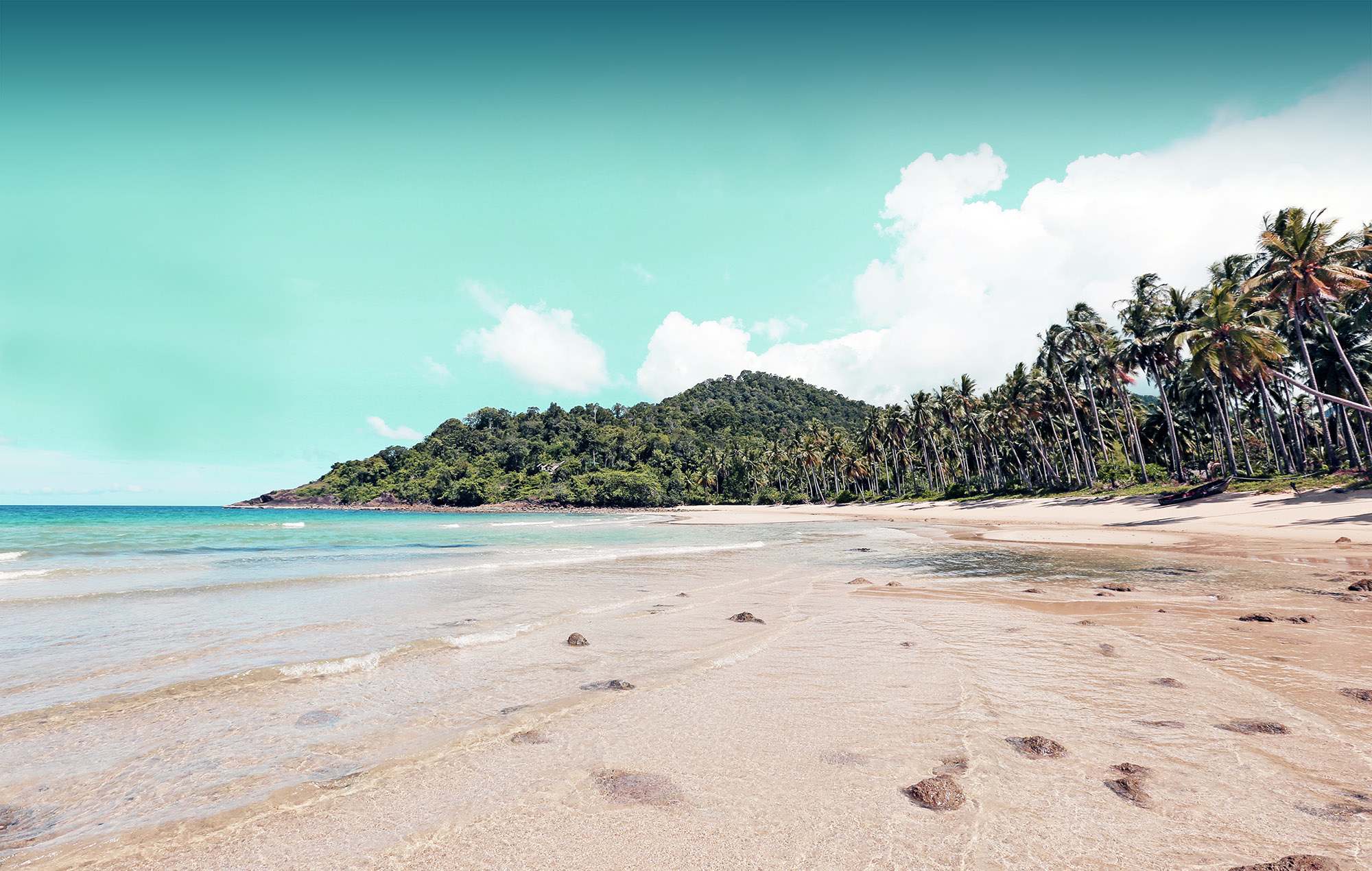Are Luxury Travel and Sustainable Tourism Compatible?
Imagine a luxury hotel in the middle of a resource depleted and naturally fragile area. Imagine tourists paying the same amount for a single room night of pampering and wellness as a local villager outisde the hotel gate dreams of making in a year. And imagine tourists sipping imported drinks in swimming pools while the next door family daughter misses school because she has to walk to the nearest well for water.
It doesn’t sound right. In fact, it sounds UGLY.
Luxury as an Opportunity
Should we dismiss luxury as a careless playground for the privileged to show off their success and claim their reward for “working hard”? Of course not. This is not a fair portrayal of luxury tourism. Without a doubt this type of tourism has rightly received criticism for its wastefulness and at times detrimental effects on natural resources and socioeconomic stability. However, luxury tourism is evolving and both luxury travelers and suppliers in the tourism industry are embracing new and more responsible ways of traveling. Here, we want to explore how the evolving luxury market can be utilized to bring about desired changes.
You have a group of consumers willing to pay a premium for high quality and unique experiences. That doesn’t sound bad at all. In fact, that sounds like a huge opportunity.
The New Luxury
First, however, let’s look at our understanding of “luxury”. The concept is highly contextual and personal – not a thing we can simply buy as the advertisements would have us believe. After a long winter in the north, I dream of the luxury of a warm and sunny day. After months in the tropics, I dream of the cold fresh air in the north. Luxury can be as simple as a cold shower after a hiking trip. Luxury can be having a computer. Luxury can be not having one. Then again, luxury can be wearing a diamond ring and driving a Ferrari.
Despite the high elasticity of the meaning of luxury, the current understanding of the concept is evolving from being associated with things you can own, to being authentic experiences. This presents opportunities for the travel and hospitality industry.
The Evolution of Luxury and How this presents Opportunities for Sustainable Tourism

In the old paradigm of luxury, a luxury hotel experience is nearly identical whether you are in Boston, Cape Town or Ho Chi Minh City. The amenities, the services, the language, the food, the procedures, and even the morning newspaper will be the same. You will not be confronted with local cultural differences – at least not more than exotic references of the place you are visiting. The experience will be a tourism bubble of comfort, convenience, and familiarity which shields off the surrounding environment.

Burj Al Arab Jumeirah (background), an example of classic hotel luxury.
This form of tourism is in no way dying out. However, luxury tourism providers are increasingly held accountable and questioned about their impacts on natural and social environments. Furthermore, the new luxury segment – a new paradigm of luxury – is quickly emerging. This segment seeks fulfilling experiences in harmony with nature and sociocultural surroundings. And in this paradigm, a wildlife experience in a remote destination while sleeping in a rustic eco-lodge harvests much more social capital and envy from peers than a luxury stay at a Hyatt hotel in the Maldives or even the self-proclaimed 7-star Burj Al Arab Jumeirah in Dubai.

A new kind of luxury travel: Unique nature, wildlife, and adventure.
A New Synergy between Luxury Travel and Sustainable Tourism?
With the growth of this new luxury travel segment, sustainability and luxury travel have the potential to prosper together. Here are some of the ways local communities, wildlife, and natural surroundings can benefit from the new luxury travel segment.
Local Economic Boosts and Jobs
New luxury travelers value authenticity and uniqueness of people and place. This means that they want to experience local culture, food, arts, handicrafts, and traditions. This presents opportunities for local community members to become managers, receptionists, guides, drivers, cleaners, sellers, artists and so on inside the tourism industry. Not only will this support the local beneficiaries directly, it will also create a multiplier effect from bringing more economic means and demands for services and supplies into the community.
Community Development
Sustainable luxury suppliers within tourism commit to educating and training their staff and partners. The training can be in anything from management and service to marketing and language. This means that even people with little formal education can receive skills and experiences that empower them to follow their passions. Additionally, it is common that ecolodges and sustainable tourism providers support various local projects such as local schools and organic farming.
By stressing local produce, food, customs, handicrafts, and artistry, positive heritage awareness and cultural pride can be boosted through the appreciation of visitors. Local youth can thus be encouraged to keep valuable cultural traits alive and connect with their roots.
Improved Infrastructure
A new village well, solar powered electricity, improved roads and transport options, internet connectivity, garbage collecting system, and sanitation. These initiatives can all be positive impacts derived from sustainable tourism. New luxury travelers, although adhering to more natural barefoot luxury experiences, will often demand clean water, efficient waste and garbage management, and other familiar conveniences. If developed and managed sustainably, this can bring the mentioned improvements to the local community as well.
Wildlife and Environmental Protection
In low-resource countries, wild natural landscapes and wildlife are sometimes worth less than the economic potential of farming, plantations, and even poaching. As a result, these wildlife oases are diminishing while species and plants go extinct. Tourism has the potential to reverse this trend. The new luxury travel market that seeks authentic adventures and wildlife will gladly pay national park fees and extra premiums to experience natural beauty, making environmental protection more economically sound and sustainable than alternative and degrading forms of land use.
As new luxury travelers emphasise healthy living, organic and locally grown food will be in demand, resulting in less pesticides and healthier crop management.
Can Luxury Travel Lead the Way?
If we accept the new paradigm of luxury, luxury travel can lead the way in boosting sustainable tourism. The potential opportunities of tourism to generate positive impacts on people and environment are in no way new. These advantages have been discussed through three decades. What luxury adds to the mix, however, is a stronger economic incentive plus a bigger opportunity to act as a trendsetter for tourism development and tourist experiences in general.
Sustainable travel does not have to be limited to village homestays and primitive bungalows anymore. With the advancement of sustainable technology and refinement of tourist motivations, it is now easier than ever for all stakeholders in tourism to include sustainability as an integrated part of their operations. Indeed, it even makes economic sense to care.
Further Information about Luxury Travel and Sustainable Tourism
This article was inspired by an excellent webinar by BookGreener.com called “Could Sustainability be the Future of Luxury”. The webinar explores the synergies between luxury travel and sustainable tourism, and three absolute front runners of sustainable tourism share their wealth of knowledge and experience on this issue.
Guest speakers from the above webinar are Anna Pollock (Conscious Travel), Mikaku Doliveck (Floating Leaf Eco-Luxury Retreat), and Aebe Christian De Boer Shinta Mani Resort).
BookGreener is an excellent resource for anyone interested in sustainable tourism. You will find a lot of practical solutions drawn from tourism industry leaders, and we encourage you to hear and see their other inspiring podcasts and webinars on tourism sustainability.
Other valuable resources on the topic:
- Evolution of Luxury: New Affluent Seek Rich Experiences Over Material Wealth by Georgette Tan from MasterCard. On how affluent citizens from Africa, Middle East, and Asia/Pacific increasingly seek rich and meaningful experiences rather than material possessions.
- The Evolution of the Luxury Guestroom by Michael R. Paneri from Viceroy Hotel Group. On the emergence of “new luxury” and how “new luxury guests” want environmental concern and responsibility to be incorporated in the hotel design.
- The Evolution of the Luxury Travel Consumer by JohnHenry.net. On how today’s luxury travelers want to engage with their travel destination, combine simplicity and luxury, and at the same time contribute to sustainable development through their travels.
- What Does Luxury Mean for Eco-tourists? by TIES (The International Ecotourism Society). On the emergency of eco-friendly approaches to luxury tourism.




